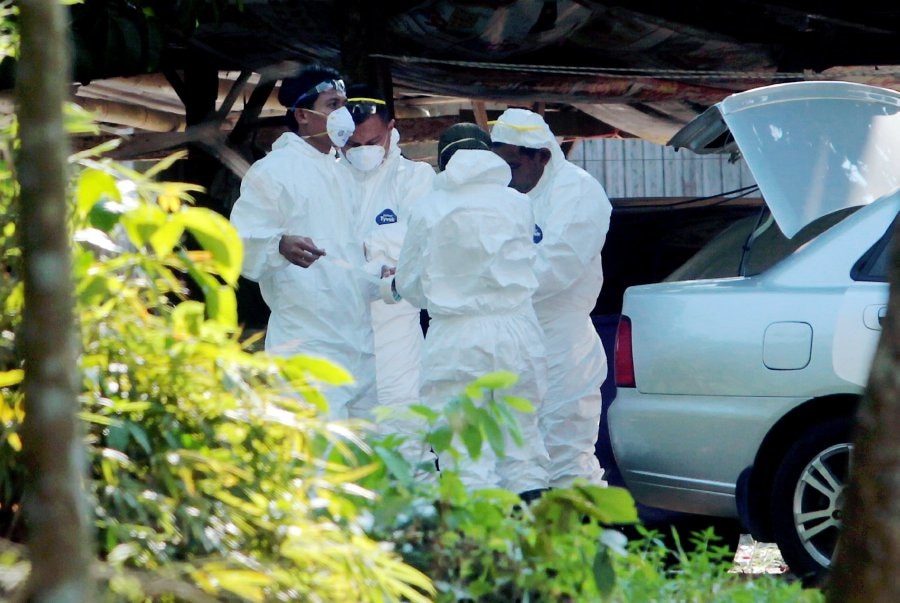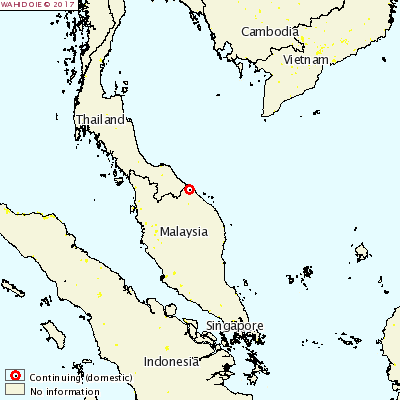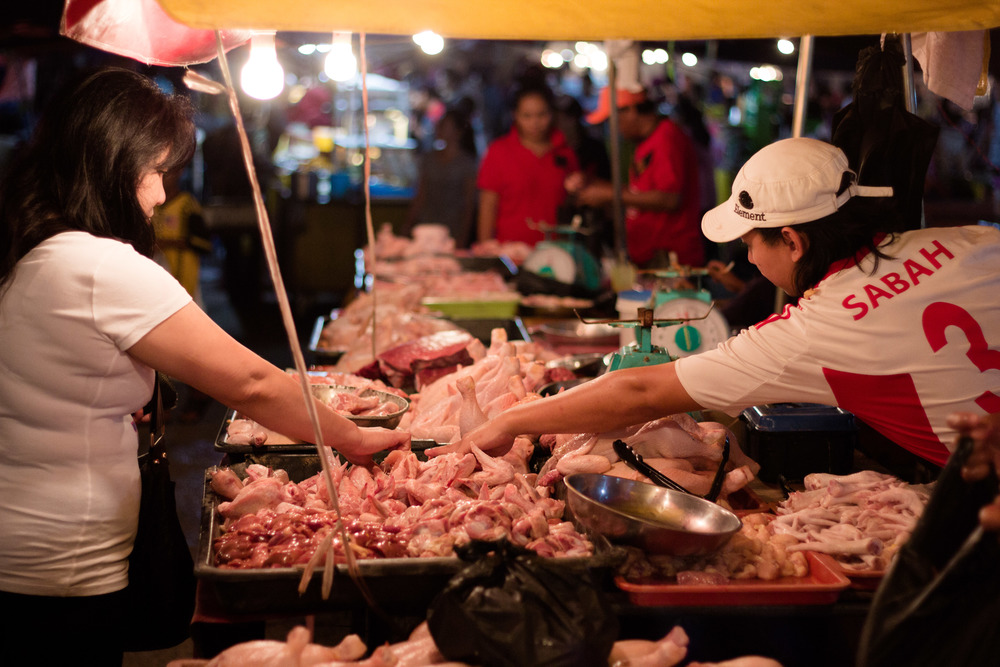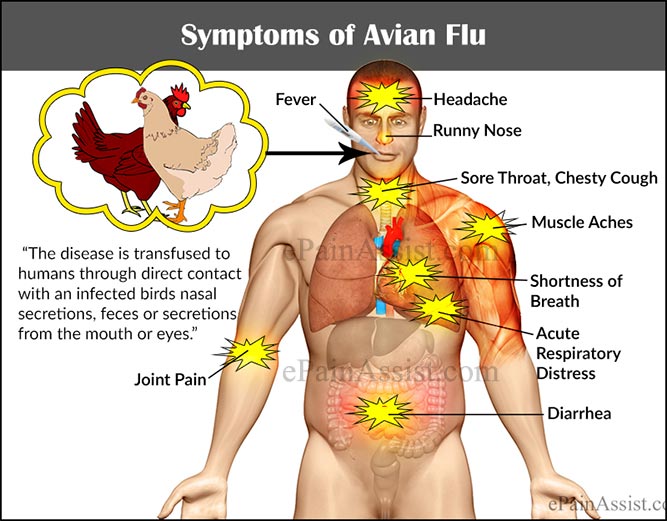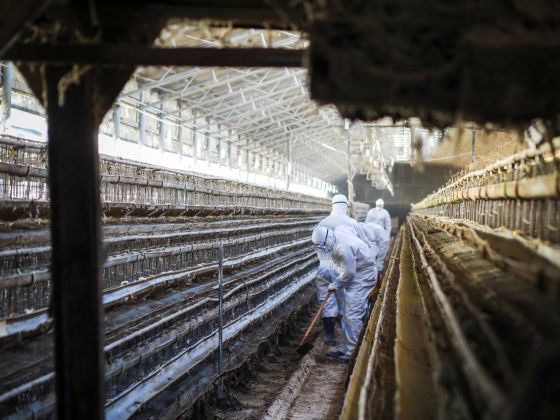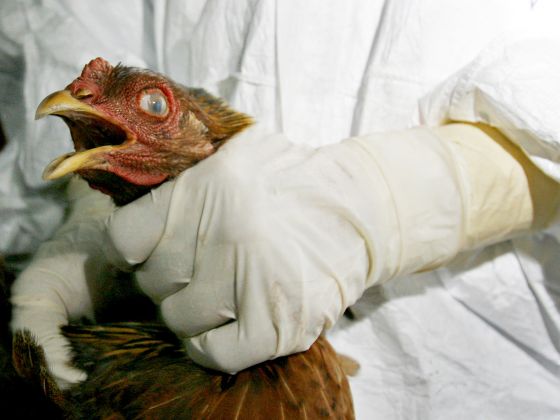Here's Everything We Know About The Highly Pathogenic H5N1 Outbreak In Kelantan
The avian influenza virus has spread to four districts within a matter of days.
Kelantan has finally declared a state of disaster, nine days after the outbreak of the avian influenza virus H5N1 in the state
Kelantan's Department of Veterinary Services team conducting checks at t Kampung Tempoyok, Bunut Susu, Pasir Mas on 14 March.
Image via Syamsi Suhaimi/NST"The state executive council has decided to declare a state of disaster as the virus has spread from Kampung Pulau Tebu in Kota Baru district to 23 villages in four districts."
"So far, 23,768 avians including chickens, ducks and birds had been culled," explained Che Abdullah, as reported by The Star today, 16 March. In addition to that, Bernama reported that 881 eggs involving 129 premises have also been destroyed.
The four districts are Pasir Mas, Pasir Puteh, Bachok, and Kota Baru. Che Abdullah added that the Kota Baru district is the worst hit with 18 villages already affected by the H5N1 virus.
The highly pathogenic avian virus was first detected in Kampung Pulau Tebu, Kota Baru on 6 March. The authorities confirmed on that day that 15 free-range chickens there tested positive for the flu.
According to New Straits Times (NST), the Kelantan state government confirmed the avian flu cases on 8 March from the samples they obtained from the chicken carcasses two days earlier.
Che Abdullah stressed that the Veterinary Services Department responded to the matter immediately by culling 170 birds, including kampung chickens, guinea fowls, geese, ducks, birds, commercial chickens, and 100 eggs from Kampung Pulau Tebu.
However, the outbreak is spreading fast despite the government's early countermeasures that started right after the virus was detected over a week ago.
In their efforts to eradicate and control the disease, the Kelantan state government has set up a special task force to look into the outbreak.
What is H5N1? Does it affect humans?
H5N1, also commonly known as "bird flu" is a disease that affects wild birds and poultry when they are infected by the avian influenza virus.
This H5N1 strain of influenza virus causes highly infectious severe respiratory disease in birds. There has been reported human cases of H5N1 avian flu, but it is difficult for it to transmit the infection from person to person. If a human is infected by H5N1, the mortality rate is about 60%.
How does H5N1 influenza spread to humans?
It was reported that people can be infected by the bird flu if they come in close contact with infected live or dead birds, or H5N1-contaminated environments. Note that there is no evidence that the disease can spread to people through properly cooked food.
However, H5N1 is still a bird virus - it spreads easily among birds but has not undergone the genetic changes that will enable it to be transmissible among humans. If that happens, H5N1 infection in humans can cause severe diseases with high mortality rate.
With the current H5N1 outbreak in Malaysia, is it safe to eat poultry products?
The H5N1 virus is sensitive to heat, so there is no cause for concern if the poultry products are cooked thoroughly and prepared well. Normal temperatures used for cooking food will kill the virus.
Note that most H5N1 human cases are usually linked to home slaughter and poor preparation of diseased poultry products.
What are some of the symptoms of H5N1 in humans?
- High fever (> 38°C)
- Malaise
- Chest pain
- Diarrhoea
- Abdominal pain
- Muscle aches
- Sore throat
- Cough
If left untreated, the infection can quickly progress to severe respiratory illness and neurological changes including altered mental status or seizures.
The information above on H5N1 was obtained from the World Health Organization (WHO).
How did the H5N1 virus spread in Kelantan?
The Kelantan state veterinary department reportedly believes that the virus may have spread through cockfighting activities involving roosters from neighbouring countries, similar to the last outbreak in that occurred in 2004.
In line with that, the authorities have asked the public to avoid and stop any cockfighting activities for now.
Kelantan state Veterinary Services Department director-general Datuk Dr Kamaruddin Md Isa, has urged the people to not hold any cockfighting competitions, especially at the border areas to prevent the bird flu from spreading anywhere else.
"We see a similarity between these cases and those in 2004 which also occurred in Kelantan where roosters infected with H5N1 were involved in cockfighting at the border areas."
"So far, no new location has been found to have been infected and the epidemic has not spread to other states," said Md Isa, as reported by Bernama.
The authorities are currently conducting investigations to identify the real source of the epidemic.
On 19 August 2004, Malaysia first reported H5N1 outbreak in Kelantan but no deaths were recorded. However, three years later, in 2007, a H5N1 outbreak affected village chickens in Selangor. That was the last time Malaysia recorded a H5N1 avian influenza outbreak.
While the Malaysian Health Ministry has confirmed that there has been no human H5N1 cases detected so far, the public has still been advised to take precautions and report to the authorities if they come into contact with dead birds
Channel NewsAsia reported on 15 March that the Malaysian Health Ministry’s director general, Noor Hisham stated that the ministry is on the alert to ensure that the virus will not spread to other states.
People have also been told to take good care of their personal hygiene in light of the outbreak.
